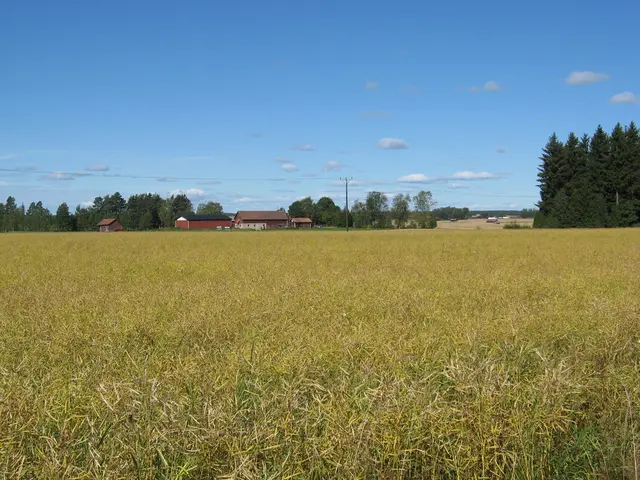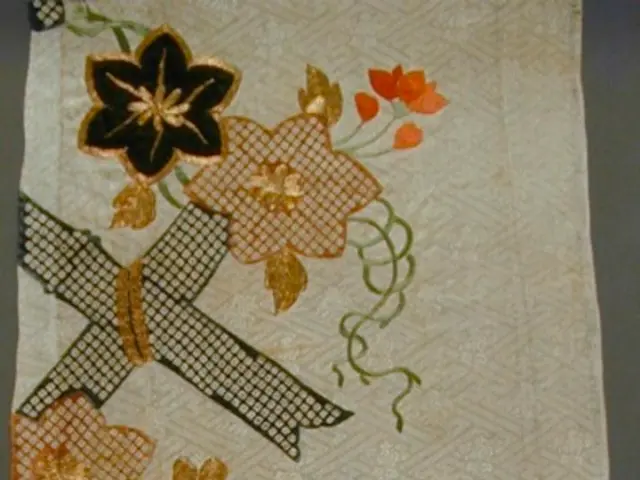The Methodology Behind Eco-Friendly Clothing Production
Hey there! You're interested in starting a clothing line but worried about its environmental impact due to fast fashion? Well, fret not! By focusing on sustainable and ethically-made clothes, you can help steer the industry away from fast fashion.
But what is sustainable fashion, you ask? It's creating eco-friendly clothing by using sustainable manufacturing practices and natural fibers like wool, linen, and organic cotton. Sustainable fashion, after all, means creating clothes that can last. Fast fashion, on the other hand, produces clothing at a staggering pace, often sacrificing quality and contributing to environmental degradation.
According to the World Bank, less than 1% of used clothing is recycled into new garments. That's a worrisome statistic, isn't it? Fast fashion leads to enormous amounts of waste and pollution, making it a significant environmental problem.
Now, you might wonder, what does it take to make a sustainable clothing line in the fashion industry? Let's find out.
Sustainable Fashion and Natural Fibers
Sustainable fashion is all about using organic fibers and fabric, avoiding costly textile dyeing methods and manufacturing. Besides more sustainable materials like cotton, you have numerous eco-friendly options, such as hemp, silk, and bamboo, to choose from.
When creating custom clothing orders, you'll have a greater chance of having a say in which sustainable fibers and fabrics make up most of your clothing line.
Most Sustainable Fabrics
When shopping for ethically-sourced fabric, you have various sustainable material options at your disposal to craft your perfect clothing line.
Organic Cotton
While cotton itself is more sustainable than many other fibers, conventional cotton often contains pesticides and other pollutants. Organic cotton offers clothing manufacturers the opportunity to skip these possible pollutants and opt for the best form of cotton they can work with. It's also versatile.
Hemp
Hemp is an extremely resilient plant that requires little water, small space to grow, and no pesticides or other chemicals. It's a fantastic choice for sustainable fashion.
Tencel
Tencel is a new, eco-friendly fabric that's great for fashion designers looking to reduce water usage in their production process.
Several well-known fashion brands, such as Patagonia, Madewell, and Eileen Fisher, actively use Tencel in their clothes. Patagonia also adopts more sustainable textile dyeing methods.
Why Sustainable Fashion Matters
Sustainability in the fashion industry is crucial. When a clothing manufacturer engages in ethical and sustainable practices, it shows they care about the environment.
Creating local jobs, as the company Jennifer Evans does in Los Angeles, allows local seamstresses, pattern makers, and fashion designers to be part of something with a positive impact.
Final Thoughts on Sustainable Fashion
Launching your own clothing line doesn't necessarily mean a damaged environment. By using more natural fibers, ethically sourced fabric, and thoughtful design, you can craft a unique and environmentally-friendly fashion line. Let's get creative and embrace sustainable fashion!
- To help steer the fashion industry away from fast fashion, focus on creating a clothing line using sustainable manufacturing practices, natural fibers such as wool, linen, organic cotton, hemp, silk, and bamboo.
- Custom clothing orders offer a greater opportunity to select sustainable fibers and fabrics for your clothing line in the fashion-and-beauty industry.
- Organic cotton, hemp, and Tencel are sustainable material options for fashion-designers looking to create eco-friendly clothing, avoiding costly textile dyeing methods and pesticides.
- Adopting sustainable and ethical practices in the fashion industry matters because it demonstrates a commitment to the environment, supports sustainable-living, and provides local job opportunities in industries such as home-and-garden, fashion-and-beauty, or any field striving for sustainable development.








